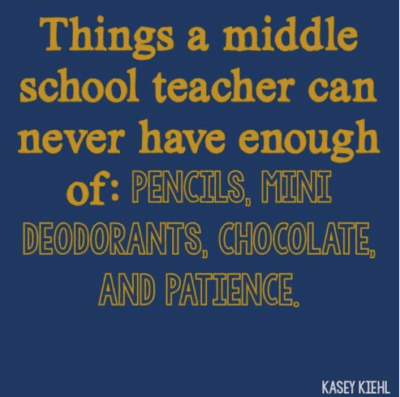
Truth for Teachers Podcast
Our podcast has received over a thousand 5 star ratings + 8 million downloads. We’re kicking off the 15th season in January 2022. You can support our work by subscribing in your favorite podcast app for free!
Angela Watson, Editor-in-Chief
Angela is a National Board Certified educator and has a masters degree in Curriculum and Instruction. She created the first version of this site in 2003, when she was a classroom teacher herself.
We cannot avoid discussing this, because teaching is inherently political
Let me get a little more specific about what’s happening with teaching in particular, since we’re all educators here listening to this.
Dig deeper to find out WHY truth is being manipulated
This is the larger issue: right now, the truth is up for grabs. People are defining it in many different ways. There are facts, and there are now apparently, alternative facts.
Are we practicing what we preach to our students?
We as teachers cannot fall for this narrative. We have to do all the things we teach our students to do:
Insist on truth-telling from those in charge and hold them accountable
We cannot settle for propaganda. We cannot keep within the bubble of party lines or go along with what everyone else is thinking. We cannot blindly accept what ANY our representatives say as truth–not our president, not our governors, not our district leaders, not our school boards.
Teachers are known for love of knowledge, but for not for challenging the system
Defending knowledge is a part of our collective identity as teachers. Historically, we educators are known for our love of facts, our love of accurate information and our passion for communicating that information to others. We seek out knowledge ourselves and we impart knowledge to our students. This is what we love. This is what we do.
Refuse to ignore troubling patterns or normalize deception
Truth is a bipartisan issue. It is something we should all care about and all seek. The election is long over and the issues we’re facing now have nothing to do with whether you’re a registered Democrat or Republican. This is a battle for all Americans, for all people, to fight together.
Get out of your comfort zone and take a stand on issues affecting our students
We need you to fight back against anything that’s not best for our students and the families we serve. Equity for students should be a bipartisan issue. Stand up for yourself, for your school, for kids, for families in your community.
What is childhood trauma?
One of the best definitions I’ve heard of trauma comes from researchers Rice and Groves (2005): trauma is an exceptional experience in which powerful and dangerous events overwhelm a person’s capacity to cope. Every child has a different capacity to cope, so this definition honors each child’s individual reactions and interpretations.
5 things to understand about trauma
There’s a book called Fostering Resilient Learners ( by Kristin Souers and Pete Hall) which gives a general overview of how to be trauma-sensitive. At the beginning of the book, the authors provide five baseline understandings about trauma.
Practical strategies for trauma-informed teaching
Be present and emotionally available. There are ways to communicate to kids that you are there if they want to talk and letting them know you are a safe adult. From a practical standpoint, this looks like being in the moment with kids instead of frazzled, distracted, and seemingly overwhelmed.
